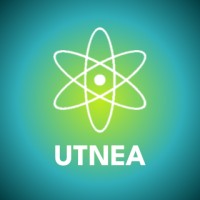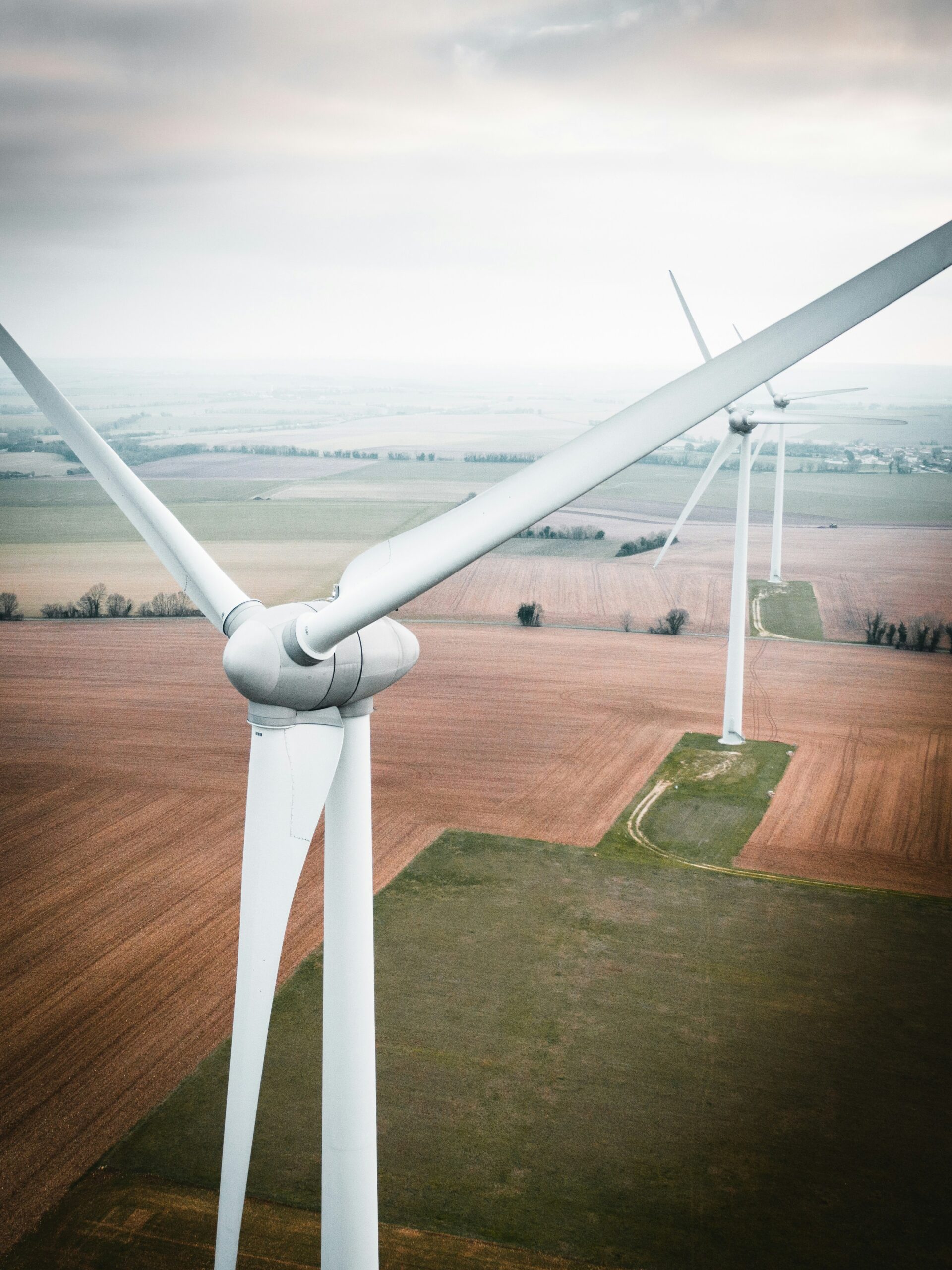Q: What’s a wind turbine’s favorite color?
A: Blew.
What is Energy Systems Engineering?
The Energy Systems Engineering major prepares students to design systems that satisfy the growing global need for the production and distribution of affordable and sustainable energy. You’ll learn how to tackle urgent issues in energy generation, storage, and transmission, while understanding the environmental, political, and economic impacts of your work. The curriculum focuses on clean energy, sustainability, thermodynamics, nuclear energy, control systems, and electric drives.
The major involves courses in electrical engineering, physics, infrastructure engineering, and more; this enables graduates to design energy systems from the scale of a computer chip to the size of a large city. Many Energy Systems Engineering graduates have gone directly into the industry as consultants, engineers for energy providers, policy analysts for energy regulators, and engineers at new energy start-ups. Others have continued their education in graduate school and research. This major is well-known for producing graduates ready for both employment and academia.
Energy Systems Engineering courses are taught by faculty members from the Departments of Mechanical & Industrial Engineering, Electrical & Computer Engineering, Chemical Engineering & Applied Chemistry, and U of T’s Institute for Sustainable Energy. An exciting new development in the Toronto area is the establishment of the new NRC Advanced Materials Research Facility, where energy researchers will be engaged with clean energy research.
Why Choose Energy Systems Engineering?
Why Choose This Major?
You’re interested in:
- Systems that have a large impact on both people’s lives and the environment. In Energy Systems Engineering, you’ll take public policy courses which connect energy systems with economics and politics. Several of your other courses focus on large-scale energy implementation in buildings, cities and even countries.
- Combining physics and engineering design in fields such as optics, energy generation, astrophysics, electronics, climate, geophysics, economics, and more
- Studying all levels of energy implementation and how they interact, from particles, computer chips, buildings, smart grids, and the world
- The “Science” part of “Engineering Science”
Many courses in this major involve practical topics such as evaluating energy generators or constructing energy-efficient buildings. Other courses cover pure science such as electromagnetism, algebra, and nuclear energy.
Where Can This Major Take You?
Recent EngSci Energy Systems Engineering graduates have pursued graduate studies at top universities such as:
- Johns Hopkins University
- MIT
- Stanford University
- UC Berkeley
- University of Toronto
Sample employers for recent Energy Systems Engineering graduates include:
- Boston Consulting Group
- The IESO
- Ontario Power Authority
- Shoppers Drug Mart
- Toronto Hydro
- Apple
- Google X
- Other government agencies
Upper-Year Insights

EngSci Energy Systems 2T3+PEY, incoming MIT Master’s student in the Technology and Policy Program | Interned in electrical grid modelling and electrochemistry
“The major has a lot of cool electives! You can focus on nuclear engineering, electrical grid design and protection, building science, or electrochemistry to name a few. My favourite course was Intro to Fusion Energy with Prof. Davis—challenging but so much fun!“
“This major stands out to me for its tight-nit community and its breadth of courses—electricity transmission, generation, storage, energy policy, and more—that have imparted me with a big-picture view of how our society’s energy systems work and how I might change them for the better. As a graduate, I’m excited to pursue some of the numerous career pathways the major has to offer and I feel empowered on my journey to building a more sustainable future.“
Courses in Year 1 and Year 2 That Relate to Energy Systems Engineering
Year 1
PHY180 will introduce you to the fundamental concepts of energy, force, and momentum, which are essential to engineering and will be vital to your future courses.
ESC103 will introduce you to the basics of linear algebra with vectors and matrices. The labs in this course will introduce MATLAB, one of the most popular programming languages for complex computations. When designing large-scale and complex energy systems, you’ll need to use computation to both produce and verify your results. MAT185 will develop your linear algebra skills, which will be important when representing electrical energy systems.
CIV102 introduces structural engineering, a topic which might be further explored in your upper-year courses. The lectures and problem sets often apply these principles to real-world building design problems; when implementing energy systems that interact with buildings, your knowledge of structures and sustainable design will be an asset.
ECE159 will start from the basics of circuitry, eventually covering more advanced circuit analysis techniques. Ultimately, you will learn about power and methods for improving power efficiency. Whether you’re harnessing electrical energy, designing devices for energy generation or capture, or integrating energy systems into buildings and cities, electrical engineering concepts will be extremely valuable to you as an Energy Systems Engineer.
The overall objective of ESC102 is to “effect a verified and validated sustainable improvement in the lived experience of a community.” Sustainability and stakeholder validation will be important in both this course and your future work.
Year 2
PHY294 is divided into two halves, with quantum mechanics and thermal physics in the first and second halves, respectively. The thermal physics part is very important to energy studies: you’ll learn about thermodynamics and temperature and energy distribution, concepts which are used in all levels of energy systems design.
CHE260 is another two-part course. The first part of the course covers thermodynamics, which includes the important concept of mechanical energy; the principles of mechanical energy are used to design all modern engines. The second part of the course covers heat transfer, an important consideration in energy systems design. You’ll learn how an object’s seemingly basic features, such as its dimensions, significantly affect its heat transfer properties.
ECE259 combines fundamental physics with useful techniques from vector calculus to explore features of electricity like electric force, voltage, current, and field strength. Whether you’re harnessing electrical energy, designing devices for energy generation or capture, or integrating energy systems into buildings and cities, electrical engineering concepts will be extremely valuable to you as an Energy Systems engineer.
ESC204 projects Praxis II onto a more advanced global scale. Your goal will be to develop a mechatronics project to positively impact an area of the world based on the Sustainable Development Guidelines by the United Nations. You may get a chance to work on an energy-related project in this course. Furthermore, Energy Systems Engineering is all about developing sustainable improvements for the world, so your experiences from Praxis III will be indispensable for your future career.
ESC203 is all about considering the impacts of your engineering work. Discussions and case studies about environmental impact and equity will form a significant part of the course, and the insights you gain from ESC203 will help inform your future practice of engineering as a whole (especially in Energy Systems Engineering, due to the field’s inherent ties to sustainability and global impact).
Interesting Courses in This Major
Energy Systems Engineering has a large variety of courses. The technical courses focus on petroleum, electrical, and nuclear energy, as well as Earth and building science, with third-year courses having a particular focus on Electrical and Computer Engineering (ECE). Some Energy Systems-specific courses include topics on large-scale energy distribution. We encourage you to see what courses and elective options most strongly interest you.
MIE303: Mechanical and Thermal Energy Conversion Processes
This course examines the design and functionality of diesel engines and refrigeration systems, based on applied thermodynamics. Topics include heat engines, steam power plants, internal combustion engines, gas turbines and jet engines, fossil fuel and alternative fuel combustion, fusion processes, and fuel cells.
CIV401: Design and Optimization of Hydro and Wind Electric Plants
This course will cover the engineering behind these plants from first principles to the various types of turbomachines. Topics include fluid mechanics, efficiency coefficients, momentum exchanges, vibration, pumps and turbines, system configuration, case studies, and more.
ECE520: Power Electronics
This course focuses on the power electronic converters used in applications from low-power mobile devices to electric vehicles, server farms, microgrids, and renewable energy systems. Concepts will include efficient electrical energy processing, energy conversion, power electronic circuits, and controller design.
CHE568: Nuclear Engineering
This course discusses both fundamental and applied nuclear engineering, from the structure of the nucleus to stability and radioactive decay, flux, moderation, fission, nuclear reactors, poison buildup, and health and safety considerations.
See the full course listing for each EngSci major in the academic calendar.
Where to Get Some Experience Before Deciding?
There are plenty of student clubs and design teams you can join to further your skills and knowledge in electronics, clean energy, and sustainability. We will list a few, but you can check out a full list on the U of T Student Life Sustainability Associations page. You can also check out the U of T Sustainability Office to find more sustainability initiatives.
UTWind
UTWind is a team that unites students across engineering and environmental sciences to design and build a small-scale wind turbine. Their subsystems include aerodynamics, controls, mechanical and manufacturing, power systems, and sustainability. They compete against universities from across the world at the annual International Small Wind Turbine Contest, held at the Hanze University of Applied Science in Delft, Netherlands. In 2022, they won first place overall! If you’re interested, feel free to drop in during a work session in the Myhal Arena.

Blue Sky Solar Racing
The Blue Sky Solar Racing team has designed, built, and raced solar-powered vehicles since 1995. The cars are highly optimized, weighing less than 1/3 the average F1 car while capable of reaching 100 km/h while running entirely on solar energy thanks to the array of solar panels that cover the cars! They compete in the Bridgestone World Solar Challenge, and consistently place highly amongst their competition. Whether you’re interested in the mechanical, aerodynamic, electrical, operational, or solar energy aspects of the vehicles, Blue Sky Solar Racing is a great place to learn technical skills and contribute to the future of sustainable vehicles. If you’re interested, attend one of their recruitment sessions. You can even see their cars on display in the Bahen Centre.

U of T Supermileage (UTSM)
UTSM designs and builds extremely fuel-efficient vehicles. They are currently developing a Prototype Battery Electric Vehicle and an Urban Concept Hydrogen Fuel Cell Vehicle (with the only fuel being hydrogen and oxygen, and the only byproducts being energy and water).
In UTSM, you can expect to gain a deep understanding of efficient vehicles and sustainable energy. UTSM competes annually in the Shell Eco Marathon Americas competition and placed first in 2015!

Sustainable Engineers Association (SEA)
SEA works to increase general interest and awareness about sustainability, defining the term as “planning our usage of resources in order to meet our future environmental, social, and economical needs.” With their many events, seminars, career fairs, and competitions, SEA educates students on the technical aspects of sustainable design and supports students to develop and implement their ideas.

U of T Nuclear Energy Association (UTNEA)
UTNEA seeks to spark student interest in nuclear energy and build a professional network of experts in the field. They host lectures and workshops and connect students with professionals in industry and research to spread information and awareness of the latest innovations in nuclear energy.
Visit the Skule Clubs and Design Teams pages to find more extracurriculars.

Check out the EngSci majors website here for more info:

